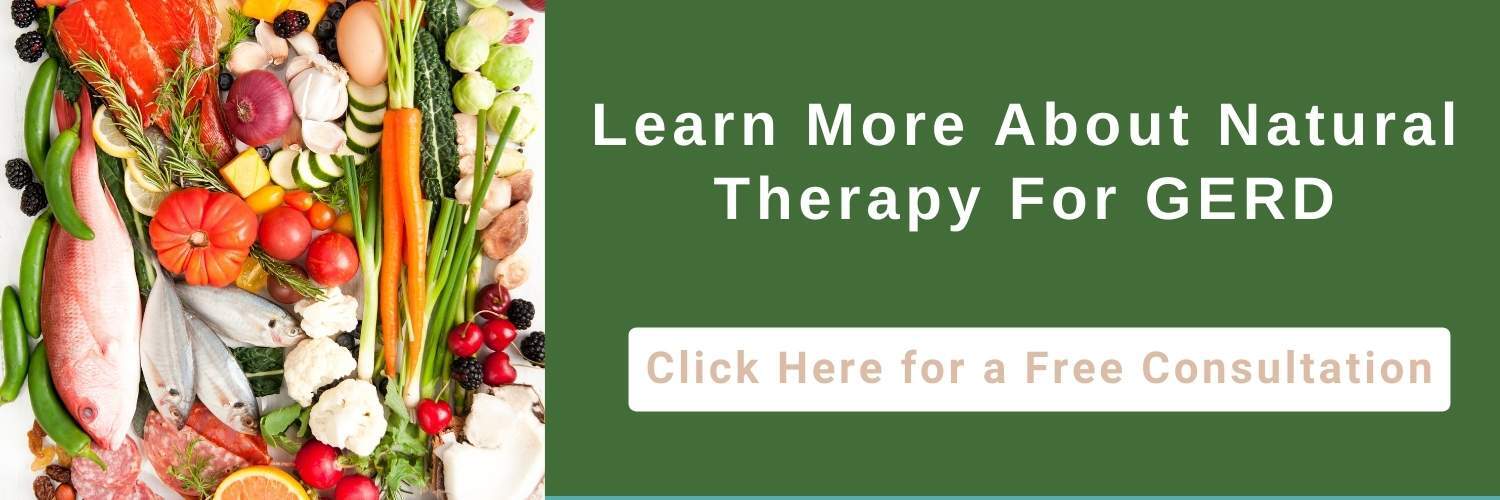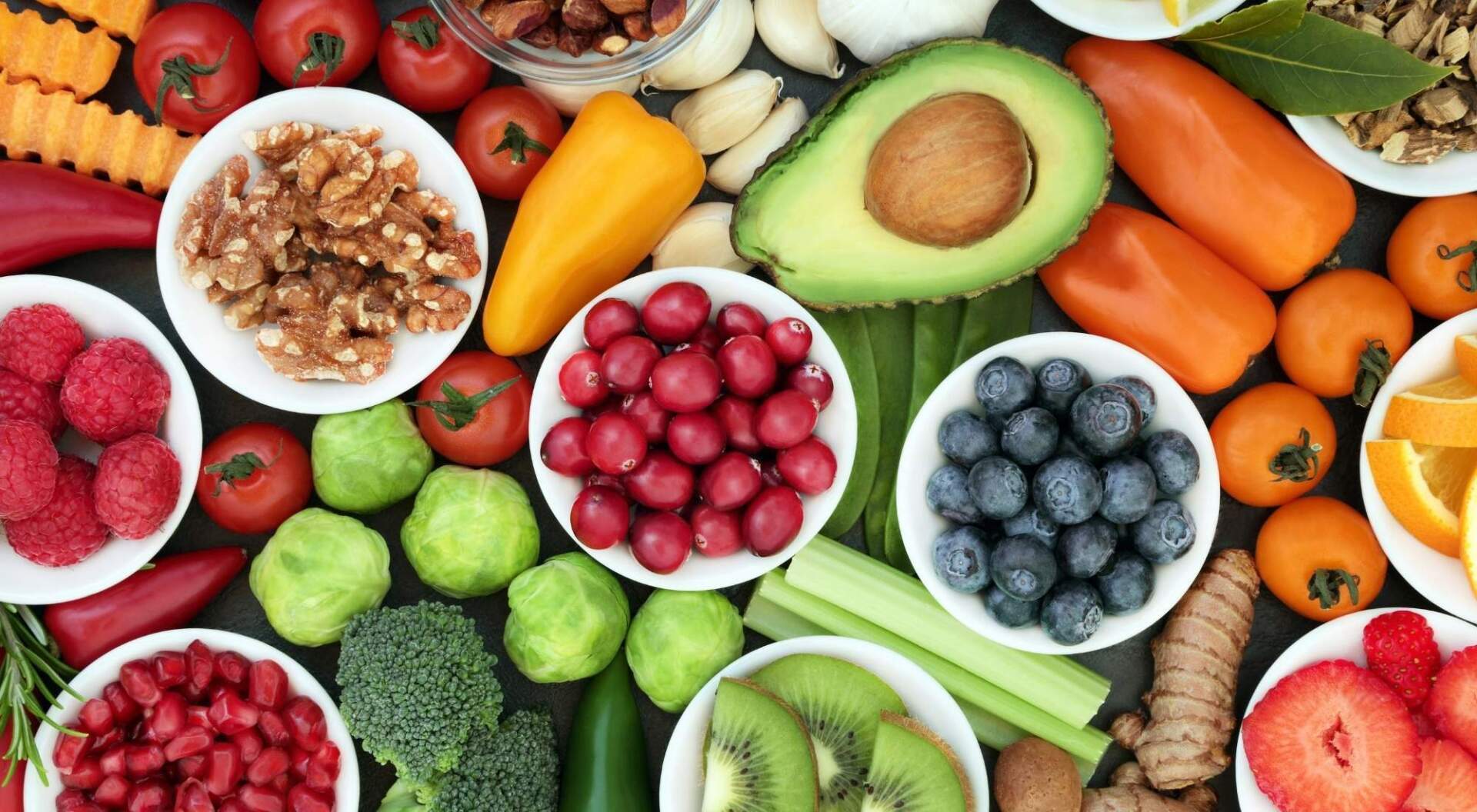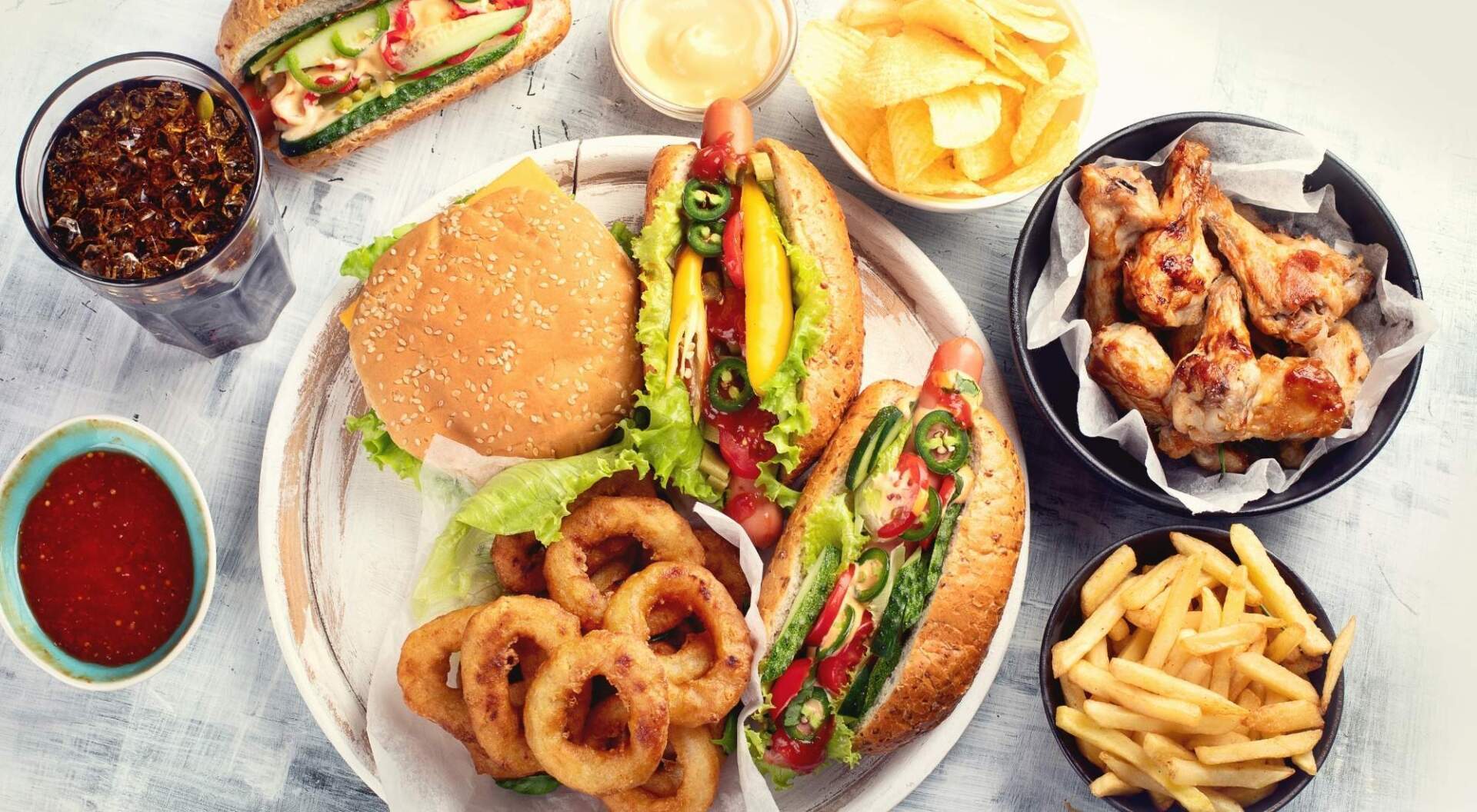What Are the Best Foods to Eat with GERD? Settle Your Symptoms With Our Diet Tips
"The content below is not intended to be a substitute for professional medical advice, diagnosis, or treatment. Always seek the advice of your physician or other qualified health provider with any questions you may have regarding a medical condition."
Living with GERD symptoms is troublesome, but preventing symptoms associated with GERD leaves many feeling as though their diet is bland and boring.
The good news? If you know what foods to eat with GERD, your diet can be far from boring.
In this guide, we’re discussing the best foods to eat with GERD, foods to avoid, and providing our top tips to prevent long-term effects of GERD.
Table of Contents
Why Is GERD Triggered By the Foods We Eat?
To understand why GERD is triggered by the foods we eat, learning how your body works when digesting food is important.
So, here’s a quick play-by-play:
At the bottom of your esophagus, there is a small band of muscles called the lower esophageal sphincter (LES). When you swallow, this sphincter relaxes, allowing food and liquids to go into your stomach. Once we swallow, this sphincter should tighten back up and close.
Sometimes, when we eat certain foods, those foods prevent the sphincter from tightening back up — allowing stomach acid to flow back into your LES and causing irritation and inflammation.
This commonly occurs with …
- Fatty
- Fried
- Spicy
… foods that put too much pressure on the sphincter, as well as foods that relax the LES, like:
- Garlic
- Onions
- Peppermint
What Foods Can You Eat When You Have GERD? Try These 7 Foods for Preventing Symptoms
You may already have an idea of what foods trigger your GERD symptoms and which foods you should avoid — but managing GERD involves more than eliminating specific foods. It also means adding foods to your diet that are beneficial for preventing GERD.
For my patients looking to fight off symptoms of GERD, I recommend adding several types of foods into their diets – foods that:
- Are easily digested — not to be confused with quickly digested
- Are low in sugar
- Are full of complex carbs and fiber; and
- Contain healthy fats
#1: Alkaline Foods
All foods fall somewhere on a pH scale (the scale that says how acidic or alkaline foods are). For GERD sufferers, adding alkaline foods into your diet can help neutralize the acidic components of your stomach.
Some of the most alkaline foods to consider consuming to prevent symptoms of GERD include:
- Grilled or baked meats
- Almost all vegetables
- Soy and coconut milk
- Chamomile
- Ginger
- Honey
- Nuts
- And more
#2: High-Fiber Foods
Fibrous foods work in numerous — and amazing — ways in our bodies.
Not only does fiber play a large role in digestion (specifically how fast — or slow — what we eat passes through our digestive tract), it also reduces the chances of stomach acid coming back up into the esophagus by …
- Putting small amounts of pressure on the lower esophageal sphincter (LES)
- Absorbing liquid in the digestive system; and
- Neutralizing stomach acid
When your body isn’t receiving enough fiber, it can cause food to move too slowly through the tract, resulting in delayed gastric emptying.
The best foods to eat with severe GERD are foods that are lower in fat, aren’t heavily processed, and have high-fiber content.
Try adding foods like …
- Beans
- Green vegetables
- Popcorn
- Brown rice
- Quinoa
- Oats
- Chia seeds
- Bananas
… to your diet to prevent your symptoms of GERD. We’ll discuss some of these foods more in the following sections.
#3: Vegetables
Root vegetables, like …
- Carrots
- Turnips
- Parsnips
- Potatoes
… are all high in dietary fiber, which is ideal for preventing GERD symptoms, but these aren’t the only vegetables with GERD fighting powers.
Broccoli, for example, is loaded with probiotics. These probiotics are made up of good bacteria that keep away the “bad” bacteria that encourage stomach acid to come back up through your LES.
Fennel is another low-acid food that helps soothe an upset stomach, making it ideal to eat when combatting or avoiding GERD symptoms.
Additional vegetables that are low in sugar, fat, and also combat GERD include:
- Leafy greens
- Cucumbers
- Asparagus
- Cauliflower; and
- Brussel sprouts
#4: Watery Foods
Watery foods help neutralize and weaken stomach acids. Try incorporating more…
- Melons
- Cucumbers
- Celery; and
- Broth-based soups
… into your diet to lessen the chances of acid reflux or GERD symptoms occurring.
#5: Lean Meats and Seafood
High-fat foods may trigger GERD symptoms. Instead, choose low-fat meats and seafood, like grilled, broiled, or baked:
- Turkey
- Chicken
- Shrimp
- Salmon
- Tuna; and
- Shellfish
#6: Non-Citrus Fruits
Non-citrus fruits are some of the best foods for GERD patients.
Citrusy fruits cause the stomach to create more acid which washes up into the esophagus. Instead, choose non-citrusy fruits that allow the muscles of the esophagus to relax and food to be digested more easily.
Some of the best fruits to eat to avoid GERD are low-acidic fruits, like:
- Bananas
- Peaches
- Papayas — which contain enzymes called papain which improve digestion and reduce acid reflux
- Pears; and
- Apples
#7: Herbs, Spices, & Supplements
Knowing what foods to eat to avoid GERD can be challenging, but understanding how to combat GERD naturally is vital to avoid any long-term effects on your body, like stomach ulcers, esophageal bleeding, or scarring.
The most commonly recommended herbs and spices for GERD include:
- B vitamins
- Caraway
- Chamomile
- Tumeric
- Marshmallow root
- Licorice root
- Milk thistle
- Lemon balm; and
- Slippery elm
What Can You Eat When You Have GERD Symptoms Right Now? Try These 3 Foods for Relief
Now you know a bit about foods to eat with GERD to avoid long-term effects — but sometimes GERD flare-ups still occur, especially if you haven’t figured out what triggers your body.
And maybe you’re curious, “are there any natural remedies that work quickly?”
Luckily, antiacid medications aren’t your only option.
Here are our favorite foods to help relieve symptoms of GERD when they occur.
#1: Ginger
Ginger is one of the best GERD-safe food choices — as long as it’s eaten in moderation.
Ginger is beneficial for several reasons, two of the top being:
- It contains phenolic compounds which are believed to relieve gastrointestinal irritation and reduce the risk of stomach acid flowing back into your esophagus.
2.
Reducing inflammation in the body — including the inflammation of the esophagus.
#2: Milk
Milk gets a bad rap when it comes to choosing what to eat with GERD, and milk with higher fat content certainly won’t help your symptoms, but low-fat foods and beverages can.
One percent milk, as well as low-fat yogurts, can act as a (temporary) buffer from gastric acid, providing almost immediate relief of GERD symptoms.
#3: Fermented Foods
Foods that reduce inflammation and improve digestion are ideal for those who suffer from GERD — which is why fermented foods play a positive role in a GERD-friendly diet.
Fermented foods like …
- Yogurt
- Vegetables; and
- Kefir
…. are just a few examples of what you can eat with GERD that have probiotic effects
What Should You Not Eat With GERD?
We’ve touched on foods to eat with GERD and why they are beneficial, but there are several foods you should not eat if you’re trying to manage and improve GERD symptoms, including:
- Alcohol
- Caffeine
- Chocolate
- Tomatoes
- Citrus fruits and juices
- Tomato-based foods
- Garlic
- Spicy foods
- High-fat foods; or
- Fried foods
How to Avoid GERD Symptoms By Knowing Your Triggers
Aside from opting to not eat any foods that may contribute to GERD symptoms, it is vital that you also understand what foods may trigger them.
How do you know what foods are triggering your GERD symptoms?
Consider keeping a food diary for a full week and tracking:
- The foods you eat in a day
- The time you eat those foods; and
- What symptoms you experience throughout the day
If your diet varies greatly, keeping a diary for a longer period of time can be beneficial.
Still unsure of what’s triggering your GERD symptoms?
Nutrition Response Testing can help you identify and overcome GERD by identifying what causes your symptoms, determining the best foods for GERD patients, and helping to create a plan to overcome and rid the body of those symptoms completely.
How Can You Start Incorporating GERD-Friendly Foods Into Your Diet?
Making diet changes while figuring out what triggers your symptoms can be overwhelming, especially in the beginning. We suggest patients do the following:
- Start slowly — switch or remove one or two foods/beverages from your diet at a time. This makes journaling easier and can help you figure out what’s causing your GERD symptoms.
- Make a meal plan each week — grocery shopping is easier when you know what you’re shopping for ahead of time.
- Make a GERD-friendly recipe book —
use websites like Pinterest, or create a binder, with your favorite recipes that don’t trigger your symptoms.

Other Lifestyle Changes That Can Improve Your GERD Symptoms
Aside from your diet, your lifestyle can greatly influence your GERD symptoms. Managing your GERD symptoms may involve:
- Limiting the amount of alcohol and caffeine you consume
- Chewing gum after meals
- Maintaining a healthy weight
- Quitting smoking
- Eating smaller more frequent meals
- Chewing food thoroughly
- Not eating three to four hours before bed
- Staying upright for at least two hours after you’ve eaten
- Elevating your head while you sleep
Learn What to Eat With GERD to Manage Your Symptoms With HealthierU and Nutrition Response Testing
Struggling to find relief and searching for what to eat with GERD?
Dr. Sergi at HealitherU in New York can help you determine what triggers your GERD through Nutrition Response Testing — we don’t believe in just masking symptoms.
At your appointment, Dr. Sergi will start with an NRT assessment to help uncover the cause of your symptoms. Once we’ve narrowed down what triggers the symptoms, we can create an action plan that involves:
- What not to eat with GERD
- Food choices that can eliminate symptoms;
- Additional lifestyle changes you can make to avoid symptoms returning
If you’re ready to say goodbye to symptoms of GERD without the use of over-the-counter medicines, contact our Brooklyn, NY, HealthierU office today for a free consultation.





